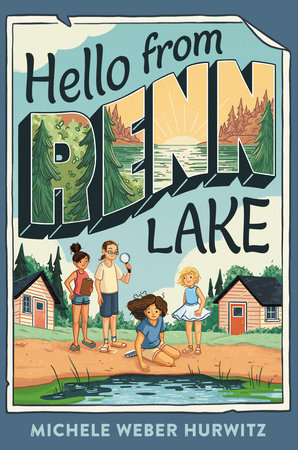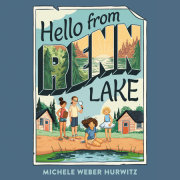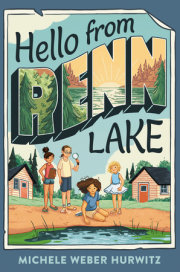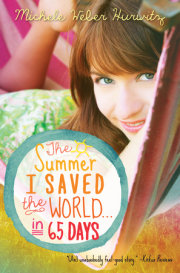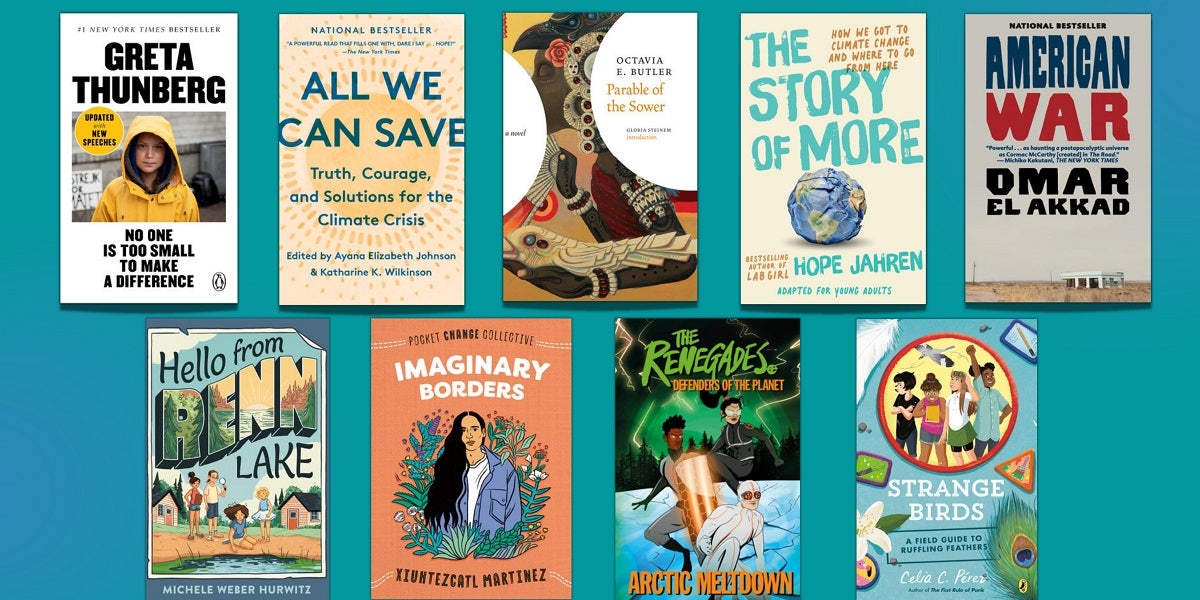Chapter One
Annalise
“Jess! We have to get to the cabins. Come on!” As I open the screen door that leads to the porch, there’s a muffled reply from my sister, somewhere upstairs. I bend over and reach underneath the wicker armchair to grab my flip-flops, then slip them on and go down the steps.
Jess is gesturing dramatically in front of her bedroom window. She pauses when she spots me, then opens it and yells down, “I’m in the middle of a scene, Annalise!”
“Hurry up and finish. Mom and Dad need our help.”
She crosses her arms and stomps her foot. I can’t quite see it, but I know. Always the right foot. With all the stomping Jess does, I don’t know how her right leg isn’t shorter than the left one by now.
“Why do we have to get there so early!” she shouts. “It’s the first day of summer vacation!”
I’m about to remind her how much there is to do with all the guests checking in when I hear her thundering down the stairs. Jess says acting is her thing, not helping out with our family’s rental cabins on the lake. But she’s never tried out for anything--not at school or the community theater. Jess lets the screen door slam behind her. “Okay, fine. Let’s go.” She’s wearing a gold-sequined tank top; a flouncy, satiny white skirt; and wedge sandals. She’s also drawn major cat eyes with black liner and painted her fingernails neon green.
I tilt my head. “Why are you dressed like that?”
She twirls, then almost falls as she jumps over the steps. “Because I’m going to walk the red carpet.” She skips around a puddle, then parades to the sidewalk while doing a little wave. I smile and catch up to her. So Jess.
She looks exactly like Mom did when she was little, with feathery hair, so light it’s practically white, and skin that’s almost transparent. I’m short, generously curvy, and have hazel eyes and pounds of dark ringlets. I don’t look like anyone in my family.
I step over a fallen branch. “Did you hear the storm last night?”
“Uh-uh. I fell asleep with my headphones on.”
“It was scary. I thought a window might break or something.”
“Whoa. I’m glad I slept through it.”
She stops and poses with a hand on her hip, one leg crossed in front of the other. “Oh, you’re too kind. Yes, I’m wearing a new designer. From Paris. Chloe Jeanette Le Grand.”
“Is that really a designer?”
She laughs. “No.”
We turn onto Sage Street. I’ve always wondered who named the streets in Renn Lake. There’s Main, Church, and Park, but no other spice-related roads. Sage is a mystery. Like me.
We take Sage all the way to RL Middle. When we pass the building, it looks lonely, like it misses the kids. I’ll be back there next year for seventh grade. Jess is going into fifth and has one more year at RL Elementary.
She stops her red-carpet walk and nudges me. “What’s that boy doing?”
There’s a tall, skinny boy I don’t recognize standing in the center of the athletic field. He doesn’t have a soccer ball or a baseball or anything. He’s holding a book close up to his face.
“I don’t know,” I say.
“He looks kind of weird.”
I glance at him again. “Interesting place to read.”
“Yeah, really.”
We keep walking, Jess wiggling her fingers and pointing to her neck. “Oh, my jewels? They’re from a very expensive, very exclusive boutique. All the celebs go there.”
I grin. “You’re not just an actor, now you’re a celeb?”
“Why not?”
When we reach Main Street, the large wooden sign proudly announces: welcome to renn lake, wisconsin’s best kept secret. Located halfway between Madison and the Illinois state line, Renn Lake is the town, and Renn Lake is the lake. They’re symbiotic, like we learned about in science. They need each other.
Jess turns to me and makes a heart with her hands. “I forgot to tell you. Happy found day.”
“Thanks.” I catch a glimpse of Alden’s at the end of Main across from the lake, innocent looking, like it’s an ordinary store. I shiver a little, even though it’s warm out.
Twelve years ago today.
Jess fixes her skirt, which has twisted around. “Another special dinner tonight. So yay, more cupcakes!” She sighs. “Honestly, the best part about you getting two celebrations is that I love cupcakes.”
“Really?” I huff a little. Jess would say that.
She elbows me. “You know I’m only kidding.”
We celebrate my birthday on June 2, the day the doctors determined I was born, and my found day on June 4. Mom and Dad started calling it that when I was five and they told me I was an abandoned baby. They would tickle my feet and sing a silly made-up song with rhymes for found day, like “homeward-bound day” and “astounding day” and “sounds like we love you day.” They stopped tickling when I got older, but they still sing the song. Every year.
Even so, every year on this day, there’s a hollow space in my chest that Mom and Dad’s song can’t quite fill.
I point to the sidewalk in front of the Main Street stores, wet and shiny from last night’s rain. “It almost looks like an enchanted secret passageway, doesn’t it? The way the sun is reflecting off the pavement.”
Jess doesn’t reply. She pauses in front of the movie theater and waves. To no one. “It’s an honor just to be nominated,” she gushes, giggling.
I smile. “You know you have to actually act in something before you’re nominated?”
“I will!”
“Like you played the guitar and cooked with all those fancy utensils Mom and Dad bought you? What were they? A garlic press, right? And a lemon zester?”
“Don’t make fun of me!” She zooms ahead.
I walk by Castaway, the secondhand shop, its white flag with the blue anchor waving lazily above the door, then the hardware and candy stores. Thick curls of ivy climb the front of the candy store, clinging tightly except for one long vine that lost its grip and is arching away from the building.
I stop just before the last store--Alden’s Gift Emporium: Flora, Fauna, and Whatnot. I suppose I was Whatnot?
Faded reddish brick. The wood door with a stained-glass cutout. A water bowl on the ground for thirsty dogs. A striped awning. So normal. Nothing that would signify what happened here four thousand, three hundred, and eighty days ago. I’ve never gone inside. Mom or Dad might’ve taken me when I was little, but by myself? No.
I shade my eyes and scan the window. There are some plants, a gazing ball on a stand, and a kid-sized rocking chair, but . . . Mrs. Alden.
Jess pokes my arm. “What’re you doing? I thought you said we had to hurry.”
It hits me fresh. Mrs. Alden’s gone. She died a month ago. Mr. Alden closed the store for a while and went to stay with one of his sons. But now, under the “Whatnot,” it says: come in! we’re open!
Every morning on found day, when I’d pass the store on the way to the cabins, Mrs. Alden would be in the window, like she was waiting for me. Did she know? Did she remember? She must have. She always gave me a soft smile, a nod. And I nodded back. A little thing. A big thing.
Mrs. Alden was the one who found me.
“Are you okay?” Jess asks. It feels like she’s far away, and I’m inside a tunnel.
A tear escapes down my cheek, drips off my chin, and blends into the wet sidewalk. I’ve thought about it before, many times, but without Mrs. Alden in the window, it’s like the view is clearer. My eyes are pulled into the store, to the back door, wide open to the garden. I picture a shadow carrying newborn me and then letting go. Putting me down. The shadow takes one step back. Then another. Then disappears.
It isn’t just the why, which is bad enough, but there’s the how--how did he, or she, lay me in the bassinet? Carefully? Angrily? In a rush? Did he, or she, look back? Worry that I might cry? Or did the person simply slip away without a concern, vanishing into the night?
Wisconsin’s Best Kept Secret isn’t Renn Lake.
Jess gently takes my hand. “C’mon, Annalise.”
I shake off her hand and run across the street. I have to get to Renn.
At the edge, the water curls over my toes and I sort of melt down, my legs trembling, my whole body unsteady.
Shhh. You’re okay.
My quick puffs of breath fade into the glassy blue surface.
It’s just wood, brick, glass. It can’t hurt you.
The water is warm, more like end-of-summer water. A few specks of green, the color of Jess’s nail polish, catch in the sun.
Lap, lap, lap. A soothing rhythm circles around my legs, as if the lake is holding me. My breath starts to slow. The trembling fades.
You’re safe. You’re always safe here.
I don’t actually hear Renn’s words. I sense them. Feel them.
I have since I was three.
Chapter Two
Renn
“Annalise?” Her sister is standing near. “How come you took off?”
She wipes her eyes. “I don’t know. I’m all right now. Go on. Tell Mom and Dad I’ll be there in a minute.”
“Okay.” Her sister skips toward the row of cabins.
A baby linden leaf drifts toward Annalise and she leans forward, cups her hand, and carries it out. Some of them don’t get to grow up. She places the leaf on her open palm and smooths it from edge to edge. A few geese fly overhead, flapping and squawking. The long reeds bend in the breeze and graze my surface. I hear laughter; two teenage boys are playing on my shore.
I wait.
The geese are long gone, black smudges far off in the sky, when Annalise says, “Why?” Her voice cracks, like a branch splitting from a tree. “Why, Renn? Why did someone abandon me?”
She’s asked before. On her found days. After a ragged puppy was discovered wandering alone by my shore. Sometimes, strangely, on moonless nights. I always send soft, calming ripples but I never have an answer. After all this time, there is much I don’t understand about people.
Annalise returns the leaf to my surface and I guide it gently on its way. We spend a few minutes in silence. A cloud moves across the sun, and she and I share the shade.
“Mrs. Alden’s gone now,” she whispers. “I can’t talk to her, if I ever wanted to. She’s the only one who might’ve seen. . . .”
My old heart aches. I dig through my treasures--there are many that have sunk to the bottom--keys, sunglasses, fossils, lots of canoe paddles. Things that were accidentally dropped into my wide-open arms, never to be seen again.
I can’t offer her something special like my distant relatives Pacific and Atlantic. They could give her a whole peachy-white conch shell or a pointy shark’s tooth. But I give her what I have. I bubble up an arrowhead and deposit it right by her knees.
Her face brightens as she picks it up. “Wow!” she says. “Look at this!”
I flow in delight.
She leaps up and runs toward the cabins. I watch as she flings open the door to the office and shows the arrowhead to her parents. Her dad whistles, her mom oohs and aahs, then taps her finger on the tip.
“Let me see,” Jess says, leaning in. “Cool, but I’m sure there’s tons of arrowheads out there.”
Not true. That was my only one.
Annalise’s mom envelopes her in a hug. I imagine their two hearts pressing together, each hearing the other’s.
Tru and I have had many discussions about hearts. We have a simple one, directly in the deepest center, requiring only sunlight and oxygen to keep it going. People, I know, have a more complex heart. Ventricles, atriums, interconnected valves and muscles. And four separate chambers. Four, like the seasons, the winds, and the wings on a bumblebee.
I’ve thought long and hard about those four heart chambers. A brilliant design. If one should break, as it must have for Annalise when she was first told about being abandoned, there are still three others to rely on. But what about me and Tru, with our simple heart? What if it breaks?
“Tru?” I call softly.
No answer.
“Tru? Can you hear me?”
Tru is sluggish and steamy today. My cousin’s a moody river, impulsive, changing course without warning. If Tru doesn’t feel like talking, there’s a quiet, empty space between us.
Lately, I’ve been feeling warm too. The rain was heavy last night. An angry storm, sending debris and branches into my waters, ripping them into sharp fragments of driftwood.
When people are too warm, they jump in from the pier, wanting me to cool their reddened skin. But I’ve wondered, what will cool me if I stay this warm?
The days are getting longer now. The pines are shedding their brittle needles and the lindens are caring for their young saplings. Soon, people will fill up my shore from end to end. I rustle my ancient, watery bones. Time to get ready for summer.
Chapter Three
Annalise
Mom’s holding me so tight, my nose is smooshed against her T-shirt. “Happy found day, sweetheart,” she says.
“Thanks.”
She lets go but puts her hands on the sides of my shoulders and sniffles a little. “Twelve. I still can’t believe it. How did that happen?”
“It happened because you can’t stop it from happening,” Jess answers, spinning, making her skirt flare out.
Dad hugs me too; then they glance at each other and launch into their found day rhyming song, with Jess humming along, pretending she’s holding a microphone. I let them go, until they finish on a long, drawn-out note and round of applause. They beam at me and I try to smile back.
I slide the arrowhead into my shorts pocket. It feels smooth and flat against the fabric. When I take out my hand, I realize it’s shaking. Walking by Alden’s, I always felt kind of uncomfortable, a little tragic and wounded, but I never saw that shadow inside.
Mom studies my face. “What’s wrong? Are you getting too old for this now that you’re almost a teenager?”
I clasp my hands to steady them. “No, no.”
“Even if you are,” Dad says, “we’re going to keep singing and embarrassing you.”
Jess laughs. “Even when she’s, like, ninety?”
“Even then,” Dad replies.
How could I ever tell them to stop? Mom and Dad tried for years to have a baby. Then I appeared. A miracle, they said. Jess was a surprise. Mom got pregnant one year later.
Copyright © 2020 by Michele Weber Hurwitz. All rights reserved. No part of this excerpt may be reproduced or reprinted without permission in writing from the publisher.

